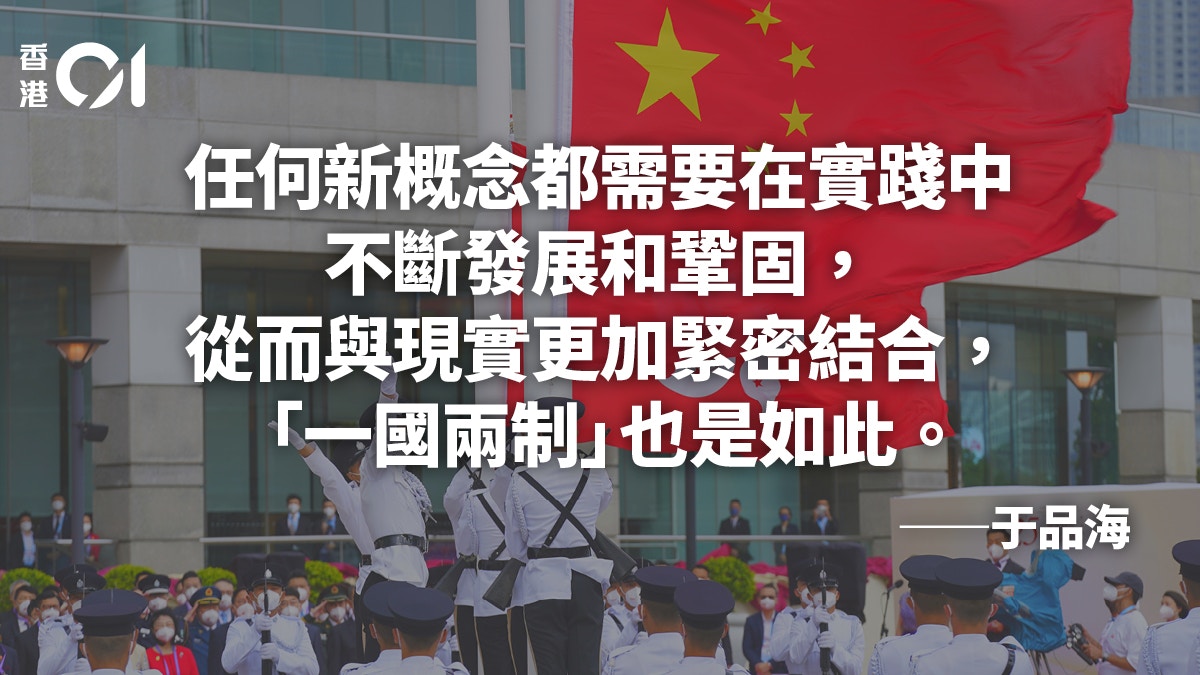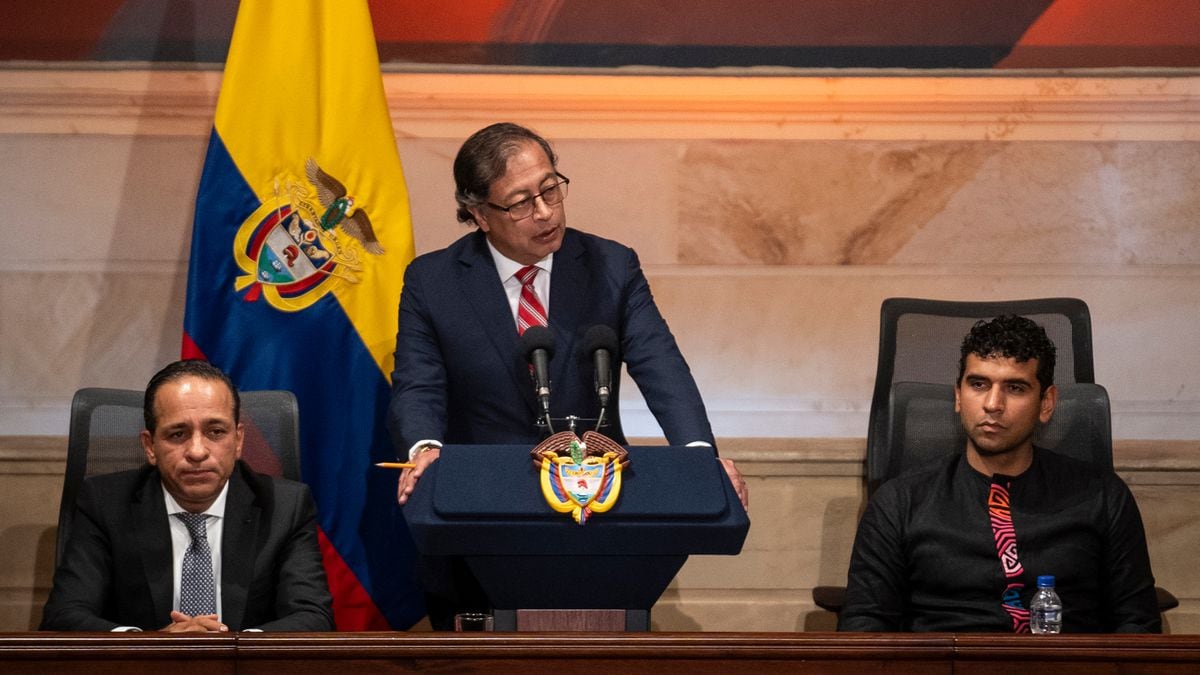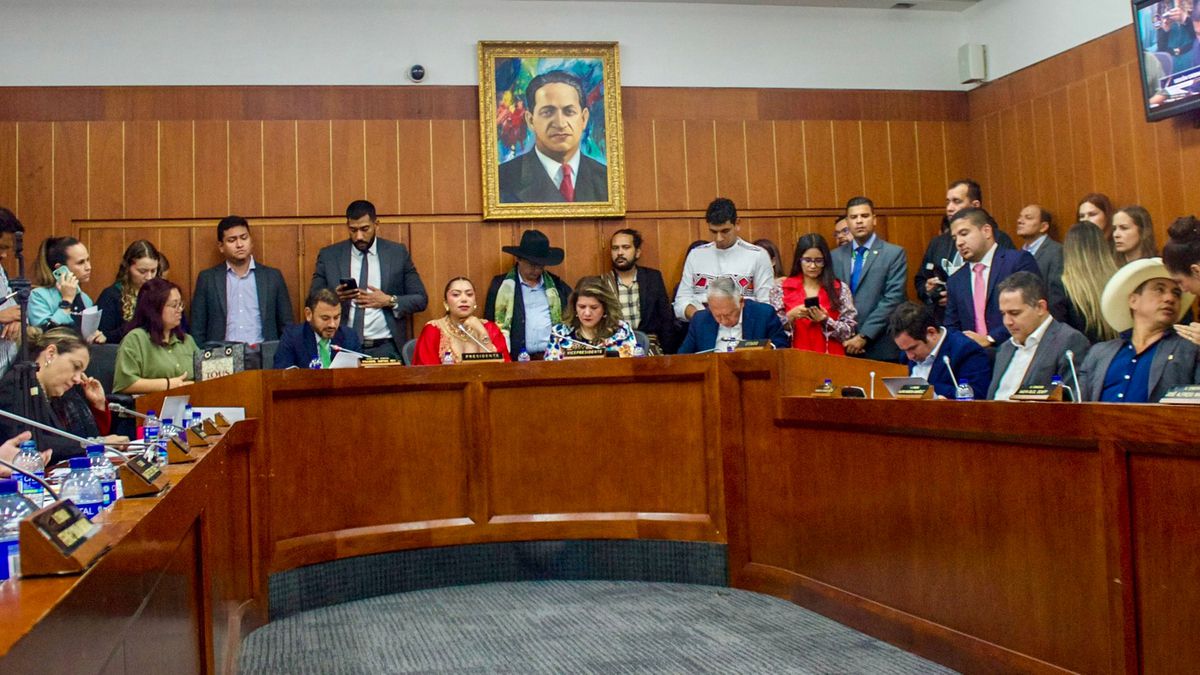Many people once thought that "one country, two systems" was an easy-to-understand concept, but this is not the case.
Deng Xiaoping put forward this theoretical idea for the unification of the country, and it is extremely political.
However, scientific theory is obviously not equivalent to a specific means to solve individual problems, it must go through the experience of the times.
Hong Kong's "one country, two systems" is one aspect of this scientific theory, Macau is another, and Taiwan's "one country, two systems" after the handover must be a different scenario.
The Hong Kong Special Administrative Region is a brand new concept of political body - it is like an independent political body, with its own currency, customs, passports, and legislatures, but it is a subordinate city without sovereignty, constitution, or army, and its main officials are appointed by the central government Appointed by the government, the National People's Congress has the final right to amend and interpret its system and the Basic Law.
Ordinary citizens of the Mainland and Hong Kong may not go deep into this seemingly contradictory relationship, but they both give the greatest support to the central government's decision to implement "one country, two systems" in Hong Kong, because it solves people's concerns about the relationship between two different social systems in the special era. The anxiety of the relationship between the two countries also satisfies the desire of most people to get rid of colonial rule and realize national unity.
After 25 years of practice, various institutional plans of "One Country, Two Systems" have encountered more or less difficulties in adaptation.
(Associated Press)
Continuous innovation can break through the "fifty years" myth
The problem is not as simple as imagined, and a new definition cannot solve all the problems in reality. The only way is to keep innovating to make the new definition more full of connotations.
Deng Xiaoping made a footnote for "One Country, Two Systems" that "it will remain unchanged for 50 years, and there will be no need to change it after 50 years." The meaning of the title is that if "One Country, Two Systems" is done well, the central government and the citizens of Hong Kong are satisfied, "Fifty years. Years" would not be a deadline.
It's easier said than done, but there are still many challenges in practice.
Although the central government has clearly pointed out that "one country, two systems" is a significant institutional advantage of the national governance system, it must be upheld and improved, which means that it will not come to an abrupt end in 2047.
President Xi Jinping also mentioned in his recent visit to Hong Kong to attend the 25th anniversary of Hong Kong's return to the motherland: "There is no reason to change such a good system, and it must be adhered to for a long time!" However, the practice of "one country, two systems" in Hong Kong is full of difficulties, so that In the middle of the "Basic Law" promising "five years unchanged", some people in Hong Kong society called out that it would be better to change to "one country, one system".
If this is not an angry remark, it is a stupid remark, but it also reminds everyone that "one country, two systems" is at a critical juncture. It is time to review the pros and cons of the system, and promote reforms at the right time, so that it can truly achieve stability and achieve a long-term breakthrough and break through 50 years. The myth of change and immutability.
"Zhou Yi.
Beneficial Gua.
The Biography says: "The way of benefiting, goes with the times." Xi Jinping has quoted this ancient adage many times on different occasions, stating that whether social governance or international exchanges, in order to benefit and benefit, we must know how to grasp the opportunity and communicate with each other. Keep up with the times.
This principle is also applicable to Hong Kong, which urgently needs to break the fog and get rid of the "mid-life crisis".
Reflect on the original intention of the system to find out the essence of contradiction
Before solving any problem, we must first reflect on the original meaning of the system. If it is still accepted by everyone, the difficulties will inevitably be less.
Fortunately, it is estimated that not many people will deny the design idea of "one country, two systems".
From this point alone, it can be confirmed that the difficulties encountered in the practice of "one country, two systems" are all at the implementation level.
However, given the severity of the situation, we cannot underestimate its complexity, let alone the effort required to correct these difficulties.
When the country and Hong Kong social elites negotiated the specific system design of "One Country, Two Systems" more than 30 years ago, the international pattern and knowledge background were very different from today.
Since the promulgation of the Basic Law, which provides the constitutional basis for "one country, two systems" in 1990, the country and Hong Kong have also undergone tremendous changes.
Mainland enterprises have become the most important wealth producers in Hong Kong's financial and securities markets. Mainland tourists and their consumption support Hong Kong's other major economic pillar - tourism. Many students in Hong Kong's universities come from the Mainland.
These changes alone are enough to touch the internal structure of Hong Kong, not to mention that the younger generation born after the handover has a new understanding and experience of the country. If no corresponding adjustments are made, the imagination and reality of "one country, two systems" will collide.
Hong Kong has suffered from tossing in recent years, many of which stem from a lack of awareness of this.
Since the original capitalism has been unable to solve the social and economic difficulties of Hong Kong, it must be reformed.
(China News Agency)
What is the spirit of "One Country, Two Systems"?
It is a response to the fact that Hong Kong has been under British colonial rule for more than 100 years. Regardless of lifestyle, economic level, and identity, Hong Kong is different from the mainland, especially the mainland of China in the 1980s.
This difference caused Hong Kong people to have great psychological contradictions about the return. On the one hand, most of them accepted the reunification with the country. On the other hand, they worried that the relatively advanced society and living environment of Hong Kong at that time would be destroyed.
According to this public opinion, all parties agree that China will resume the exercise of sovereignty over Hong Kong, but Hong Kong can preserve its original way of life and social system.
In the simplest description, Hong Kong can continue the capitalist system, the social environment and economic system of Hong Kong can be maintained, the legal system can be different from that of the mainland, Hong Kong still has its own currency and tax system, and even continues to have its own passport and immigration policy.
Since Hong Kong and the Mainland are already connected by blood, the two places have always had frequent exchanges, no matter how they were separated from each other, no matter how different they are.
However, the rapid development of the country has brought about great changes in the connection between dry ports and Hong Kong. The economic relationship once dominated by Hong Kong has become a two-way integration, and even gradually reversed. The wealth of the mainland has become an important role in Hong Kong society.
Politically, there are two systems between the two places, and it must be unfamiliar to the other system.
As the U.S. conducts a great-power game against China in an all-round way, many Hong Kong people regard institutional differences as the source of conflict, ignoring that national interests are the real cause.
Many Hong Kong people regard themselves as members of the West, meaninglessly magnifying the differences between land and Hong Kong.
When the regression of living standards was misled as the result of the mainland's intervention in Hong Kong, or even because the mainland occupied Hong Kong's resources unreasonably, the nature of the contradiction began to change.
Any new concept needs to be continuously developed and consolidated in practice, so as to be more closely integrated with reality, and the same is true of "one country, two systems".
However, the reality is developing. If leaders do not make theoretical innovations in line with "one country, two systems", the gap between theory and reality will become more and more serious.
From the state religion incident in 2012 to the anti-amendment riots in 2019, it is the result of ignoring the inherent contradictions that constitute conflicts and failing to deal with them.
It is time for Hong Kong to embark on the road of real reform with the determination to turn inward and scrape the bone to heal the poison.
(Photo by Liang Pengwei)
A Simple Look at the "Hong Kong System" Actively Reforming Capitalism
"One country, two systems" cannot be simply explained as the coexistence of the socialist system in the Mainland and the capitalist system in Hong Kong, or that such a crude system division is not enough.
The national constitution clearly states that China is a socialist country, and Hong Kong implements the capitalist system because of the recognition of sovereignty, but whether socialism as "one country" can allow capitalism to develop disorderly in the form of fundamentalism in Hong Kong, or even occur in Hong Kong Ignoring the economic crisis or social unrest common to capitalism?
If this is true, Xia Baolong, director of the Hong Kong and Macao Affairs Office, criticized the "subdivided housing", is it not a matter of overstepping and making a fuss, an arrogance of a high degree of autonomy, or even a misunderstanding of Hong Kong's economic development?
In fact, no matter what system Hong Kong relies on to develop, China as a "one country" cannot ignore it. This is the original meaning of the system of "comprehensive governance".
The Hong Kong capitalism mentioned in "One Country, Two Systems" has a precondition that it cannot affect Hong Kong's social stability and economic prosperity.
Since the original capitalism has been unable to solve the social and economic difficulties of Hong Kong, it is necessary to reform it. It is a reform under the general principle of "one country, two systems" and a reform under the premise of maintaining the capitalist system in Hong Kong.
In the early 1980s, the mainland actively promoted reform and opening up. During this specific period, Hong Kong's capitalism assumed the special historical task of helping the mainland develop and breaking the ideological shackles of economic construction.
However, the role of capitalism in Hong Kong will not be fixed and will change in response to Hong Kong's own development cycle and that of the mainland.
In fact, capitalism not only helps Hong Kong's economic development and provides momentum for the development of the mainland, but at the same time it gathers huge distortions, and even in the case of a substantial increase in GDP, it creates a huge gap between the rich and the poor and social contradictions.
In addition to the problems with its own internal structure, the predicament Hong Kong is facing today also involves a huge transformation of the mainland's economic structure.
China's economic upgrade has long driven structural changes in the global economy, which in turn has affected Hong Kong's development path.
The mainland's economy is dominated by anti-customers, and Hong Kong's traditional role no longer exists.
It can be said that after 25 years of practice, various institutional plans of "One Country, Two Systems" have encountered more or less difficulties in adaptation.
Under the premise of "one country", "two systems" should promote each other. The central government has put forward clear ideas for reform and implemented it in Hong Kong. It is also time for Hong Kong to use the knife's edge to inward and scrape the bone to heal the poison. on the road to real reform.
The CCP's third "Historical Resolution" issued at the end of last year stated that summarizing historical experience and achievements is to prepare for "starting a new journey to build a modern socialist country in an all-round way." This new journey points to the eradication of poverty, a better life, civilization and happiness. They are all real and simple pursuits, both material and beyond material.
Hong Kong should also plan its own "new journey to modernize society". This time, Hong Kong should address the inherent flaws of capitalism, remove capitalism, polarization, and materialism, and look at the system of Hong Kong from a new and simple perspective. The modernization path of the mainland, reflecting on the progressive significance of "one country, two systems", has brought "Hong Kong people ruling Hong Kong" to a higher level.
Otherwise, Hong Kong may lose its advantages and even degenerate into a purely subsidiary economy, downgraded to an ordinary Chinese city.
[Related reading: A series of articles on understanding the ten reforms]
1 | Stopping violence and chaos is the starting point. Reform cannot stop
2|Hong Kong must re-understand the Chinese Communist Party from a new perspective
3|What does "international" in Hong Kong mean?
4|This is the new "One Country, Two Systems 2.0"
5|Reform is the ten-year theme of Hong Kong society
6|Government reform is the starting point for all reforms in Hong Kong
7 | Political elites must reposition themselves
8|Rejecting game politics to reconstruct Hong Kong’s political ecology
IX|Fairness and justice must be driven by new social consensus reforms
10 | Education, public opinion, and the ideological turn of civil society




/cloudfront-eu-central-1.images.arcpublishing.com/prisa/RK3AI2H26NFTRJ3VH3EVPP573E.jpg)




